To define the HTTP proxy meaning, we need to clarify the concept of the Internet protocols and their role in categorizing various proxy servers.
HTTP stands for Hypertext Transfer Protocol, which was originally developed in the nineties as the main protocol for data exchange over the Internet. Since that time, the protocol lived through a range of iterations to become one of the pillars of the Internet as we know it today.
This protocol makes it possible to send and receive video, sound and images across the Internet. No wonder that the whole concept of the World Wide Web depends on this protocol.
So, what does an HTTP proxy mean for a regular user? In this article we will cover the specifics of using and setting up proxies that run on HTTP protocol. We will start with HTTP proxy definition and go further with the benefits of this type of IPs. You will learn about the most common use cases for HTTP proxies to be able to relate your project to them.
What is HTTP?
The foundation of the majority of contemporary Internet interactions is the HTTP protocol. This tool is essential for any hypertext request or page load. A protocol that operates at the application level over others is HTTP. A typical HTTP request would be sent back to the user along with the answer.
What is an HTTP Proxy in its Essence?
Now, what is an HTTP proxy and how does it work?
When people hear about HTTP proxies, normally HTTPS proxies are also getting mentioned. So, what is the major difference between the two?
You can think of HTTPS as a more secure version of HTTP. And the S in the name stands for ‘Secure’ as you might have correctly guessed.
Now, what makes HTTPS more secure is the use of SSL (Secure Sockets Layer) certificates to encrypt traffic. So, unlike HTTPS, HTTP proxies do not use SSL certificates and the traffic remains unencrypted. This has certain disadvantages in terms of security but boosts up the connection speed in case of HTTP proxies.
HTTP proxy servers can seriously increase the efficiency of your bandwidth use through fast caching functions. All the heavy content like graphics, video and sound can be loaded once for further multiple requests, thus saving on the traffic. This leads to faster connections all thanks to HTTP proxy application. And if you decide to use your HTTP proxy on the iPhone, make sure to read this article on how to configure your iPhone proxy settings correctly.
How Does an HTTP Proxy Work?
HTTP proxy means a mediator between your browser and the website that you are trying to reach. The targeted web server will see the dedicated IP address of your proxy when you send your HTTP proxy request. Now, this is essentially the scheme that any proxy operates on. And from the origination perspective it can be both a datacenter proxy or a residential one. What is important is that with an HTTP proxy you will get extra benefits that are coming through the use of this particular protocol. With an HTTP proxy protocol becomes a key element affecting the functionality of the proxy.
First, you will be able to save a lot of bandwidth due to the compression applied to the traffic. Caching of files and web pages will be engaged and a reduced number of ads will reach your browser. This can be extremely helpful when you need to scrape information from media heavy resources like news aggregators in response to your requests.
Another great benefit comes from the ability to configure your HTTP proxy server to be used by multiple individuals. For corporate networks it means that you can add a layer of security by adding an HTTP proxy to your corporate web server to prevent storing unauthorized content.
And, also, an HTTP proxy host can be configured to inspect the traffic source. This can seriously cut down the amount of potentially hazardous content on the way to your network, and serves as a good remedy from buffer overflow type hacker attacks.
How to Use an HTTP Proxy
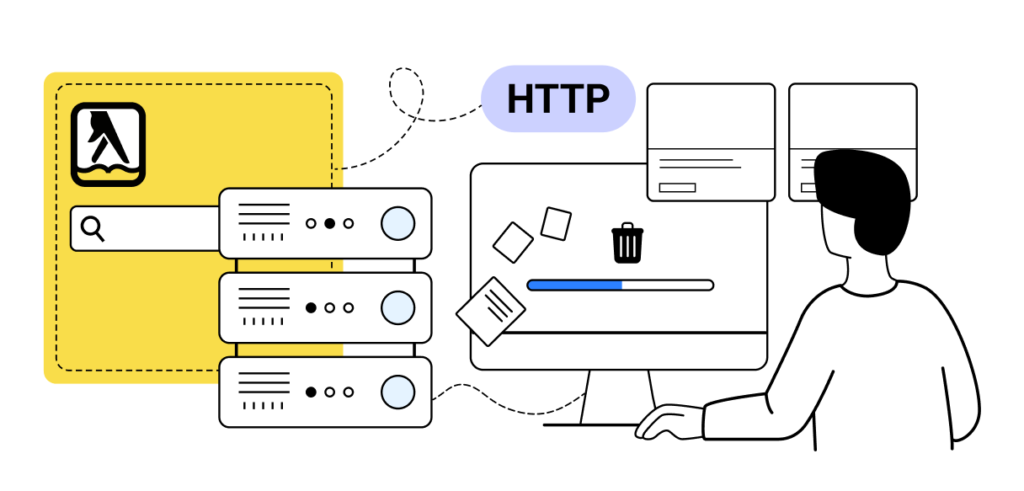
Now that you know what does http proxy mean, it’s time to discuss the most frequently detected cases of using HTTP proxies by their users. So, if you keep asking questions like: What are HTTP proxies used for? and How does a proxy server improve security? We will shed more light on these issues below.
The most common use of HTTP proxy servers spans across the following web sectors.
Fraud Prevention
An HTTP proxy can be used in a setup to help filter out potentially harmful content in the traffic from the target server. If some suspicious and/or unwanted data is detected it will be red-flagged as potential malware and you will be alerted about this. It is especially useful if you use a public wifi connection for accessing a remote website. With the growing number of hacker attacks through malware, this function of HTTP proxies becomes vital for its users.
Lead Generation
Lead generation normally involves scraping social media (like Twitter, Linkedin or Facebook) and data aggregators (like Yellow Pages and Yelp) in order to collect information on your prospect clients. HTTP proxies make it possible to access such websites without raising red-flags of the anti-bot systems. This way you can quickly collect the valuable data from various accounts or profiles to build datasets for further marketing analysis. You can apply the same techniques to build databases of potential employees or decision-makers meeting certain criteria.
SEO Optimization
You will need residential HTTP proxies to deliver you the most factual picture of your current SEO standings in search engine result pages of certain locations. This way you will be able to take necessary actions on updating your website content based on the real location-based SEO data. The use of HTTP proxies for SEO purposes is normally coupled with software tools needed to automate the process. These can be custom-made scripts or apps like ScrapeBox.
Reputation Intelligence
HTTP proxies are used by companies supplying SaaS tools for rep intel automation. Such apps help you collect all the information in the market related to reviews and opinions on your brands and products. You can also monitor your competitors this way through analyzing their advertisements and user reviews. Of course, you can use HTTP proxies in the manual mode on sites like Yelp and TripAdvisor to see your current standings with reviews. The proxies will help you react to negative reviews momentarily to alleviate the effect such reviews may have on your offerings.
Coupon Aggregators
You can easily use HTTP proxies to scrape data from coupon aggregators. These are websites featuring special deals from a variety of producers and businesses from e-shops and cafes to entertainment and travel companies.
If you are looking for the best ways to set up your own coupon aggregator or a website with similar functionality, you can totally use HTTP proxies to parse websites with special offers to quickly build up a content base for such business.
Key HTTP Proxy Benefits
Now, what are HTTP proxies good for in terms of their qualities? After having considered some of the most common areas of HTTP proxy application, it’s time to discuss the advantages of using such proxies. Below we have listed some of such key benefits. What you also have to remember is that in order to fully engage any of these benefits your HTTP proxy has to be configured accordingly.
Privacy and Security
An HTTP proxy performs its primary goal of masking your real IP to ensure your privacy. With high quality private (dedicated or elite) HTTP proxies this becomes one of the most wanted key benefits such proxies have to offer. As for the security aspects, HTTP proxies can have a configuration to detect anomalies in the traffic to filter out and deny suspicion packets. This is a great feature to prevent possible infiltrations from the outside.
Incoming Content Filtering
Corporate users can configure HTTP proxies to filter out or restrict certain content from coming into their network. You can do it by specifying domains, file names or types (extensions) that can be detected in the URL.
Customized Browser Headers
In order to be able to bypass the integrated anti-bot systems on some websites you can configure HTTP proxy to generate request headers that will be accepted by a particular site without raising red flags.
Faster Connections
HTTP proxy servers can seriously increase the efficiency of your bandwidth use through fast caching functions. All the heavy content like graphics, video and sound can be loaded once for further multiple requests, thus saving on the traffic. This leads to faster connections all thanks to HTTP proxy application.
Consider PrivateProxy Your Trusted Partner
If all of the information above sounds convincing and you want to find out more before committing your funds to buy an HTTP proxy or a pool of HTTP IPs, we are always here for you to explain further details. PrivateProxy is a data center proxy and residential proxy provider with over a decade of experience in the industry. Our account managers have carefully studied all possible cases of the HTTP proxy applications and we will gladly guide you through the process of picking just the right number of IPs for your operation. So, just go ahead and start a conversation with us via the chat-box below and let’s take it from there.
Final Thoughts
Now that you know what is a http proxy and what benefits it brings, we can agree that, it can be a great tool in configuring your network settings to avoid malware and other unwanted data in the incoming traffic. Such proxies can also be great performers in scraping and parsing missions where bypassing internal anti-spam and anti-bot systems is a key priority.
We hope you enjoyed this article that covers the most common issues of using HTTP proxies. And, again, we are always open for you to discuss any specific aspects of deploying such servers in your projects.
Frequently Asked Questions
Please read our Documentation if you have questions that are not listed below.
-
What is an HTTP proxy?
An HTTP proxy is a proxy server that runs on HTTP (Hypertext Transfer Protocol) protocol. It performs its primary function of masking the users IP while accessing websites and can be configured to cache data for improving bandwidth efficiency, and to filter out suspicious traffic while in use.
-
How to use an HTTP proxy?
In terms of settings it is a regular proxy that comes with conventional authentication credentials that you can copy and paste into your browser, bot or script. From the perspective of use cases an HTTP proxy would be a great tool for online missions involving scraping datasets, like: lead generation, SEO analysis, reputation intelligence, and fraud prevention to name a few.
-
What’s the difference between SOCKS and HTTP proxies?
While HTTP proxies are considered to be high-level and high-speed proxies developed for this particular protocol, SOCKS proxies are more flexible since they can work virtually on any protocol without any traffic limitations.
-
How does an HTTP proxy work?
An HTTP proxy creates a bridge between a client and a website for transferring media heavy files like video, audio and text using the HTTP protocol. The traffic in this case is not encrypted and can be analyzed by the proxy server.
-
What’s the difference between HTTP and HTTPS proxies?
Unlike an HTTP proxy, HTTPS proxy (where S stands for Secure) works with SSL certificates and encrypts all the traffic coming through the tunnel it establishes for data transfer. This type of proxy does not provide any of the caching features of an HTTP proxy.
Top 5 posts
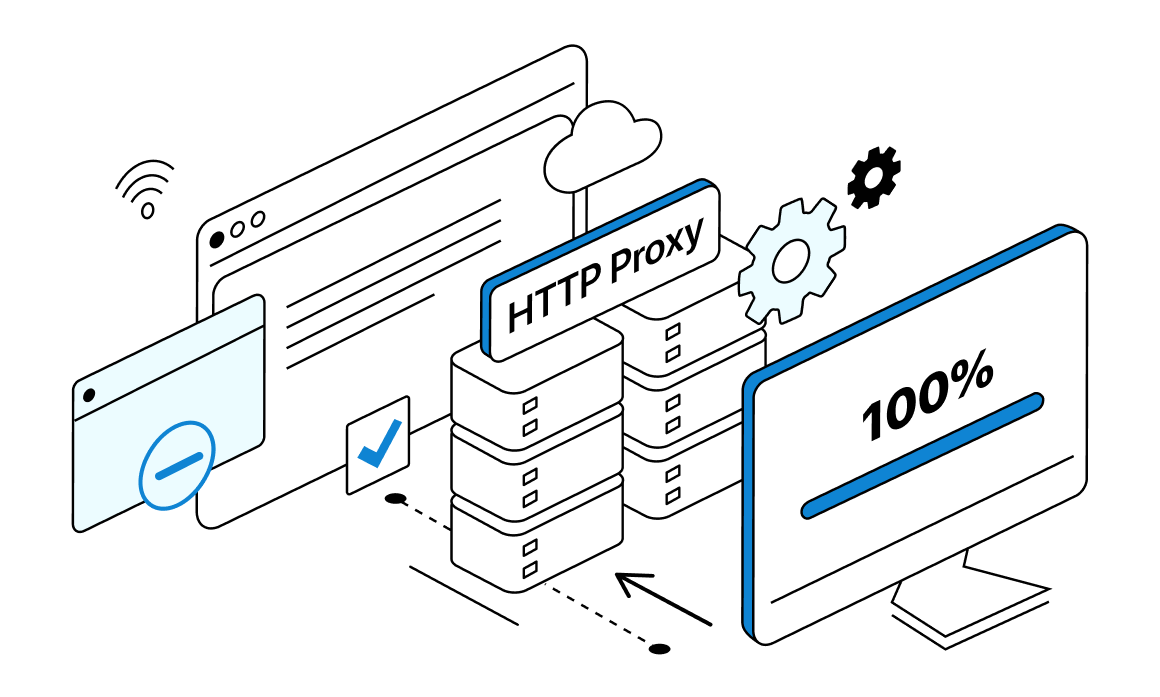

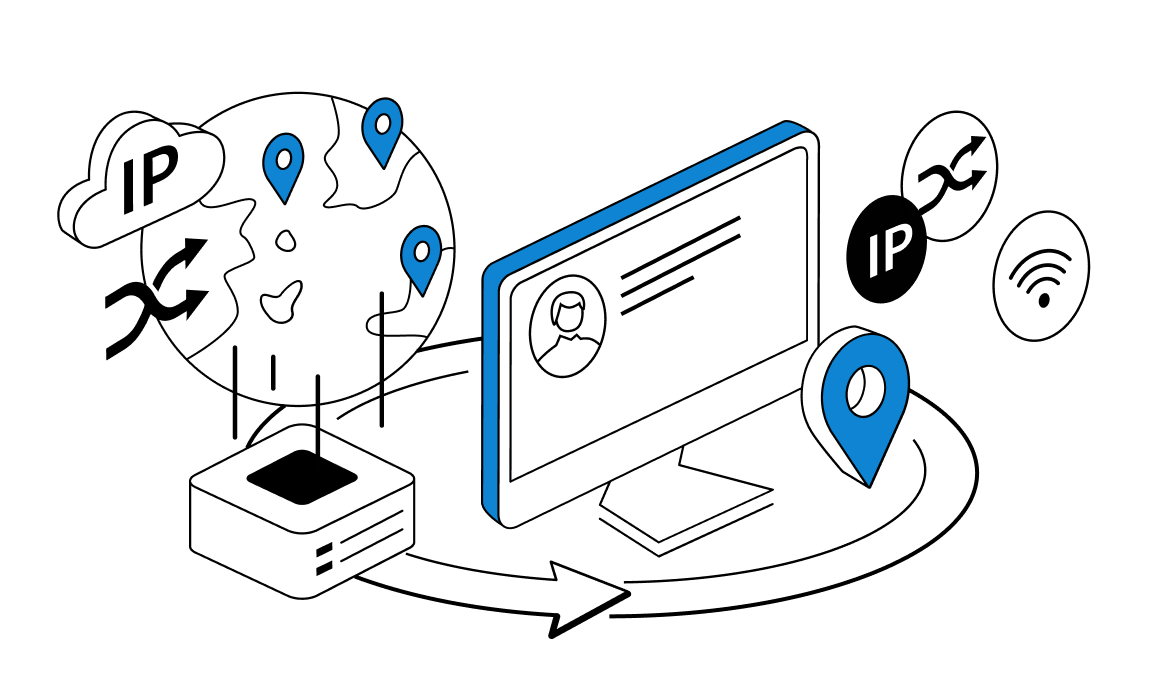
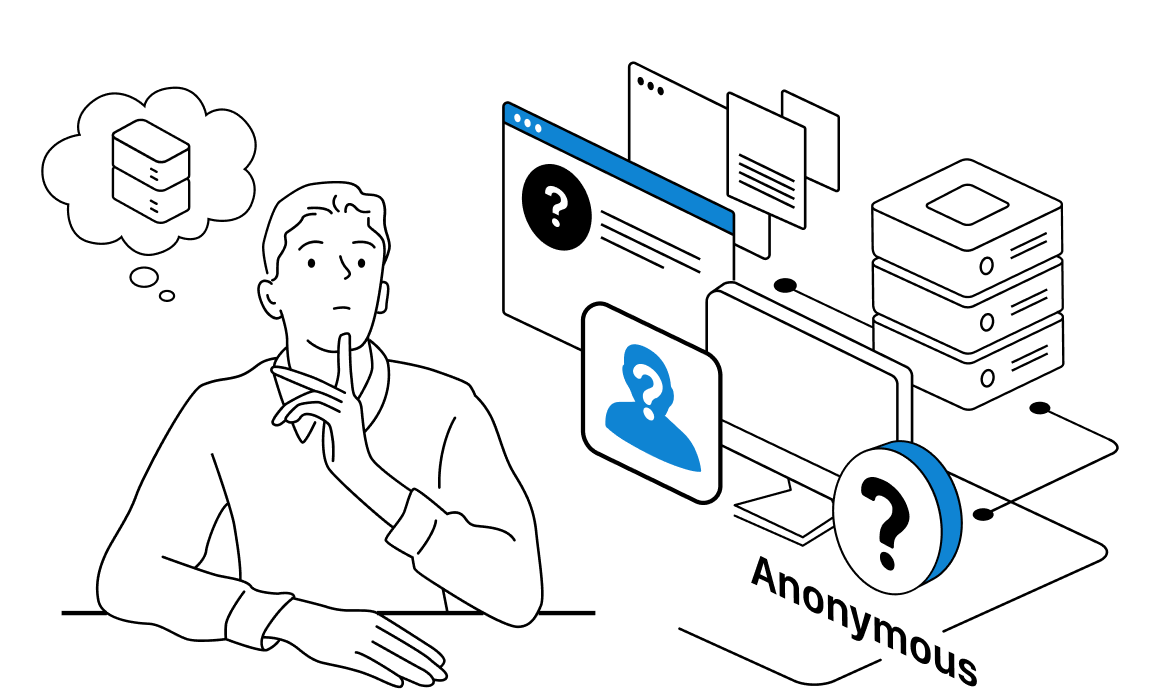
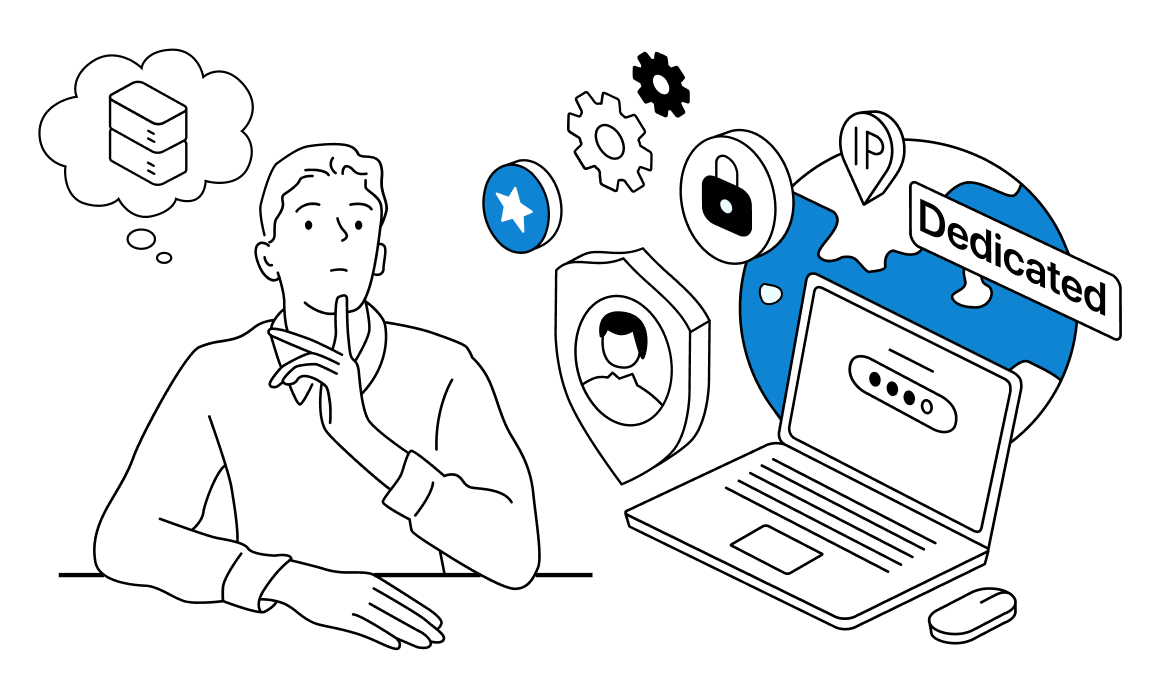

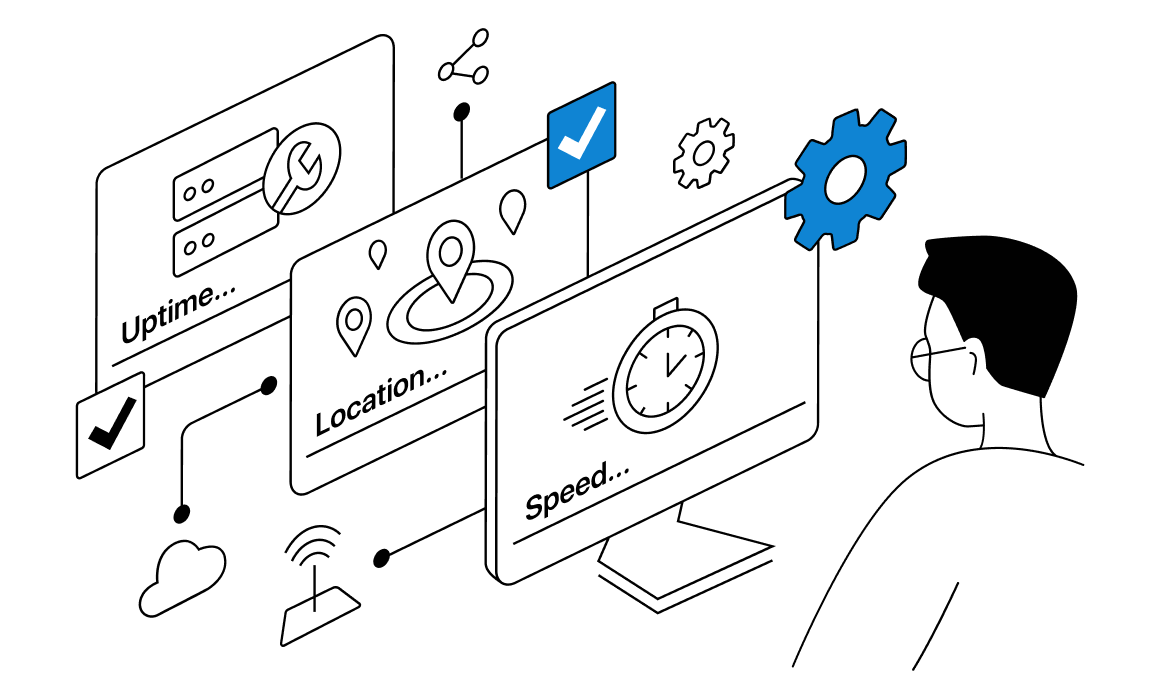
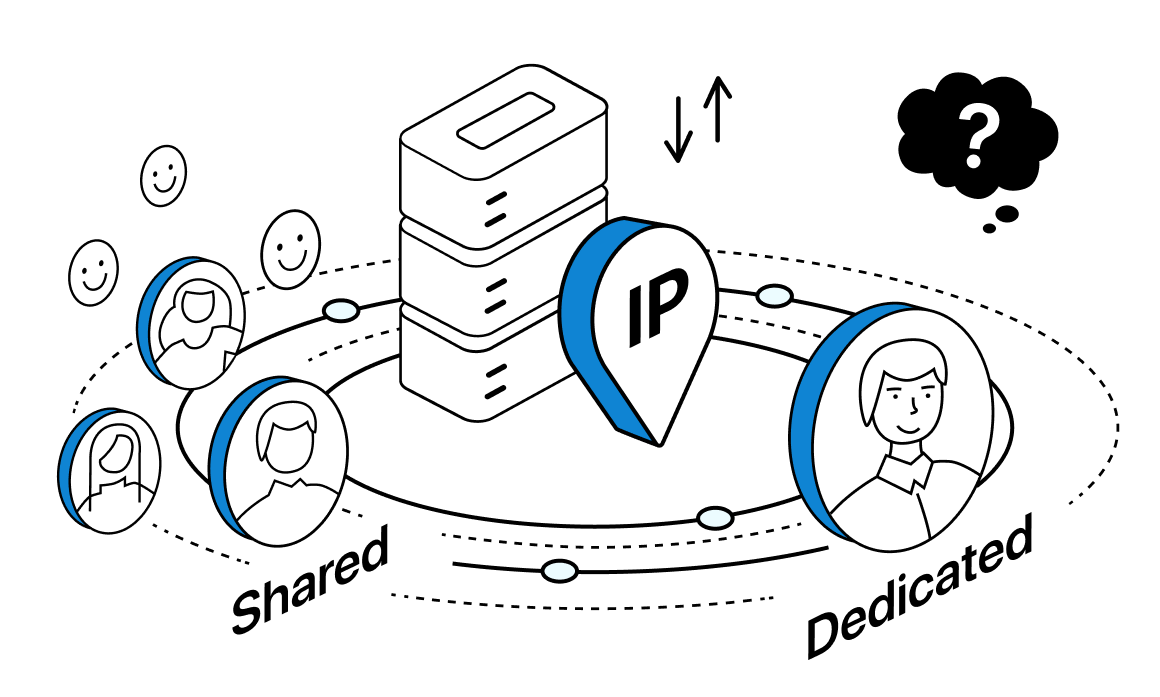
If you are ready to embark on a data harvesting mission or need to conduct a marketing research involving scraping info from an anti-bot protected website, you want to have the right tool to complete your mission without getting detected.
A random IP generated by a proper proxy can help you manage the situation.